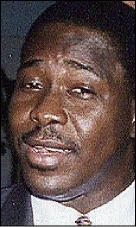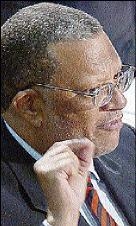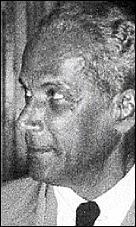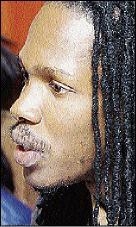



(1) Clarke ... "I think our governments have performed miserably ... ."
(2) Phillips ... "We have not made a success of our hard-won Independence."
(3) Manley ... "And what is the mission of this generation?"
(4) Crawford ... "Jamaica should aspire to be in the top 30 of the Human Development Index in 30 years"
Daraine Luton, Senior Staff Reporter
FORTY-ONE years ago, one of Jamaica's founding fathers, Norman Manley, outlined the mission of the next generation as being to attain social and economic independence.
Claude Clarke, one of those politicians who came after Manley, said the post-Norman Manley/Alexander Bustamante era has represented missed opportunities.
"Norman Manley had every right to say mission accomplished. Where our generation is concerned, I think it is opportunity lost," Clarke told The Sunday Gleaner.
At his farewell address to the People's National Party (PNP) conference in 1968, Manley said his generation had achieved what it set out to achieve. He also pointed out what he said should be the mission of the succeeding generation.
"I say that the mission of my generation was to win self-government for Jamaica; to win political power, which is the final power for the black masses of the country from which I spring. I am proud to stand here today and say to you who fought that fight with me, say it with gladness and pride: mission accomplished for my generation," Manley said.
Reconstructing Jamaica
He added: "And what is the mission of this generation?" It is "reconstructing the social and economic society and life of Jamaica".
Clarke told The Sunday Gleaner that Manley "left us a platform for reconstructing the social and economic society and life of Jamaica and we have so far squandered the opportunity and the legacy left".
"I think our governments have performed miserably in discharging the charge given to them by Norman Manley," Clarke said.
Senator Dr Ronald Robinson, state minister in the Ministry of Foreign Affairs, told a Gleaner Editors' Forum that Jamaica had made some "horrible mistakes since Independence".
"We made mistakes, but we can't dwell on those things. To do that would put me in a depressing place," Robinson said.
He added: "We had some challenges along the way, but we are just 47. The mission of our generation certainly will be to carry on with that mission which Manley outlined, and to modernise the Jamaican economy."
Successful state
Former government minister, Dr Peter Phillips, told Parliament recently that successive governments since 1962 had not done enough to advance the cause of Jamaicans.
"Despite all the gains that have been made over the years, and while the country is by no means a failed state, it is definitely not a successful state," Phillips said.
"We have not made a success of our hard-won independence," he added.
Jamaica gained Independence from Britain on August 6, 1962. This was largely done on the backs of Bustamante, Manley, and others, who led the charge to self-government.
In his Independence Day message Thursday, Prime Minister Bruce Golding accepted that some of the dreams of Independence were still unfulfilled.
"It is not difficult to identify the areas of the greatest deficit in building on our independence. First, the slow pace of economic development and our inability to provide jobs and a decent standard of living for all our people.
"Second, the weaknesses in our education system that deprive too many of our children of a good education that can make them productive and an asset to society.
"Third, the lack of respect for the rights of others, and the failure of our legal and justice system to adequately protect and enforce those rights.
"These are the priorities that must be tackled if the dream and hopes of Independence are to be fulfilled," the prime minister said.
Confronted by the stark realities of the need for social and economic advancement of Jamaicans, some of the country's young leaders have acknowledged that their work is already cut out for them.
Warren Newby, president of Generation 2000, the youth affiliate of the governing Jamaica Labour Party (JLP), has defined the mission of his generation as being "to secure developed status for Jamaica and moreover, create a society in which opportunities are guaranteed to all without discrimination".
Equal opportunity
According to Newby, his generation must ensure that the society offers "equity - where there is opportunity for advancement according to one's will rather than the circumstances of birth".
Like Newby, Damion Crawford, president of the People's National Party Youth Organisation, has no problem nailing down the mission of his generation.
"It will be to achieve social opportunity through equal opportunity," Crawford said.
He told The Sunday Gleaner that Jamaica should aspire to be in the top 30 of the Human Development Index in 30 years. Crawford said that in order for this to happen, the State must address issues, such as access to and the provision of top-quality education, health care and housing, as well as crime reduction, investment and income distribution.
Jamaica was ranked 101 of 177 on the 2008 Human Development Index. The country has a 79.9 adult literacy rate, life expectancy is at 72.2, and a per capita gross domestic product is US$4,291.
While Clarke did not comment explicitly on the route Jamaica must take to build on its independence, he told The Gleaner that there was still room to make up ground.
"The situation is not hopeless and I think the opportunity is not completely lost, but we need almost a revolution in the way we have approached governance to be able to re-engage with Manley's mission ... . There needs to be a reawakening of those in whose hands the power is now invested," Clarke said.